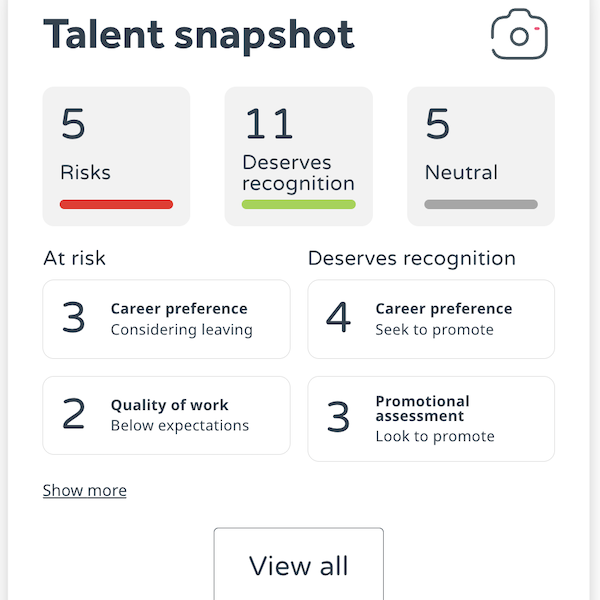Covid-19 has posed a unique set of challenges to businesses and the latest is the transition to a new normal. As lockdown eases, companies across the globe are taking tentative steps to get business back on track.
In recent months, line managers have faced the ultimate test in managing their teams through unprecedented uncertainty. Supporting the workforce as the landscape continues to shift will be tricky. Effective line management will determine employee engagement, productivity and ultimately success.
Management consultancy firm, McKinsey, report that companies did a solid job of addressing employees’ basic needs of safety, stability, and security during the first phase of the COVID-19 crisis, but warn as those needs evolve, a more sophisticated approach will be required as organisations enter the next phase.
As employee needs evolve, a more sophisticated approach to management is required
The transition through to a new normal will rely on the skill and expertise of line managers. But with a more sophisticated ask, are they in danger of getting left behind?
What is the new normal?
Work, social life and home life have all been disrupted by Covid-19, first by lockdown, and now by an intrepid journey to some kind of new normality. What this will look like nobody really knows. What we do know is that until a vaccine is developed or the virus mysteriously disappears, humanity is threatened.
Communal anxiety remains high. There is a shared sense of stress hanging in the air. Employers will need to work hard to ensure their staff feel safe. Social distancing, meticulous hygiene and the brave new world of masks are part of a new normal way of life, both inside and outside of work, at least for the foreseeable future.
Prior to the current pandemic, remote working was already becoming more popular. Covid-19 imposed its rapid acceleration. While not all people have coped with the enforced regime, many have been surprised at the benefits remote working brings.
Covid-19 has imposed a rapid acceleration of remote working
The situation has proved to employers that employees are able to work remotely for extended periods of time and many recognise that employees are happier and more productive when offered greater flexibility and a better work life balance.
HR news reports that employers should get ready for a wave of flexible working requests.
Why might line managers get left behind?
Managing a remote team requires very different skills to an office-based role and the onus is now on business leaders to ensure line managers have the training and support they need to keep staff motivated and productive.
So far, as McKinsey has pointed out, managers have done a decent job, but this has largely been borne from crisis mode and, for many, the crest of that wave will soon peter out. Understanding and practical help (ensuring employees have been able to set up workstations at home) has been central to the first phase. Now line managers need to learn how to balance these skills with accountability and managing shared expectations.
Exploiting the best communication, collaboration and organisation tools are all part of the new managerial learning curve, and never has effective communication been so centre stage.
Perhaps most importantly is the need for managers to understand how different every single team member’s needs are. But being able to respond to individual employees appropriately to ensure motivation and productivity stay intact, isn’t a skill that comes naturally to most line managers.
There are however tools and training that can help. It will be up to employers and business leaders to recognise this and invest. In the current climate this is difficult – it won’t be practical or financially viable to send all line managers away on residential training courses.
Online tools and training will be part of the solution. We Thrive’s employee engagement software, for example, offers managers a crystal-clear picture on how employees are feeling and a suite of learning materials, content and tools to address the needs of their team.
Rethinking the employee experience
McKinsey presents a compelling argument for a highly individualised approach to support employees through to a new normal. “The return phase presents an opportunity for companies to rethink the employee experience in ways that respect individual differences—home lives, skills and capabilities, mindsets, personal characteristics, and other factors—while also adapting to rapidly changing circumstances.”
The return to work phase presents an opportunity for companies to rethink the employee experience
Businesses, according to McKinsey, will need to segment their employees through a combination of science, technology, data, and analytics, just like they do with their customers in order to tailor interventions and support employees in personalised and meaningful ways.
Businesses must tailor interventions to support employees in personalised and meaningful ways, just like they do with their customers
It’s all about trust
In times of such fear and uncertainty, employee engagement and productivity will rely on staff being able to trust their employers. The workforce will be looking to line managers for leadership and reassurance.
Line managers must lead by example. Sending late night emails and working at weekends is the wrong message to send to employees who are working remotely. It will be up to line managers to keep tabs on employee wellbeing. An always-on 24/7 work culture will sabotage any wellbeing initiatives.
In an interview with Forbes, Laura Putnam, international speaker and author of Workplace Wellness that Works, argues that “Senior leaders need to help managers understand why well-being is good for people, good for the organisation and essential for building high-performing teams.”
Leaders must help managers understand why employee wellbeing is important
Remote working has been a revelation for many, enabling a better work-life balance and cutting out a long commute. But not everyone has thrived under the new remote regime. The split calls for a personalised approach as businesses enter the next phase of operating under the cloak of the current pandemic. Line managers will need to understand this in order to deliver results.
Now more than ever before, leaders must assess whether line managers are equipped with the right skills to keep teams performing at their best. Employee experience matters and business survival will depend on attention to staff wellbeing, safety and engagement.
Without the right tools and support from senior management and business leaders, there is a real danger that line managers will get left behind – worse still, that they end up as collateral damage in a round of redundancies. Either is a critical mistake since investment in managers is key to high performing teams.
Give WeThrive a try today to help your line managers get the best out of your teams.



